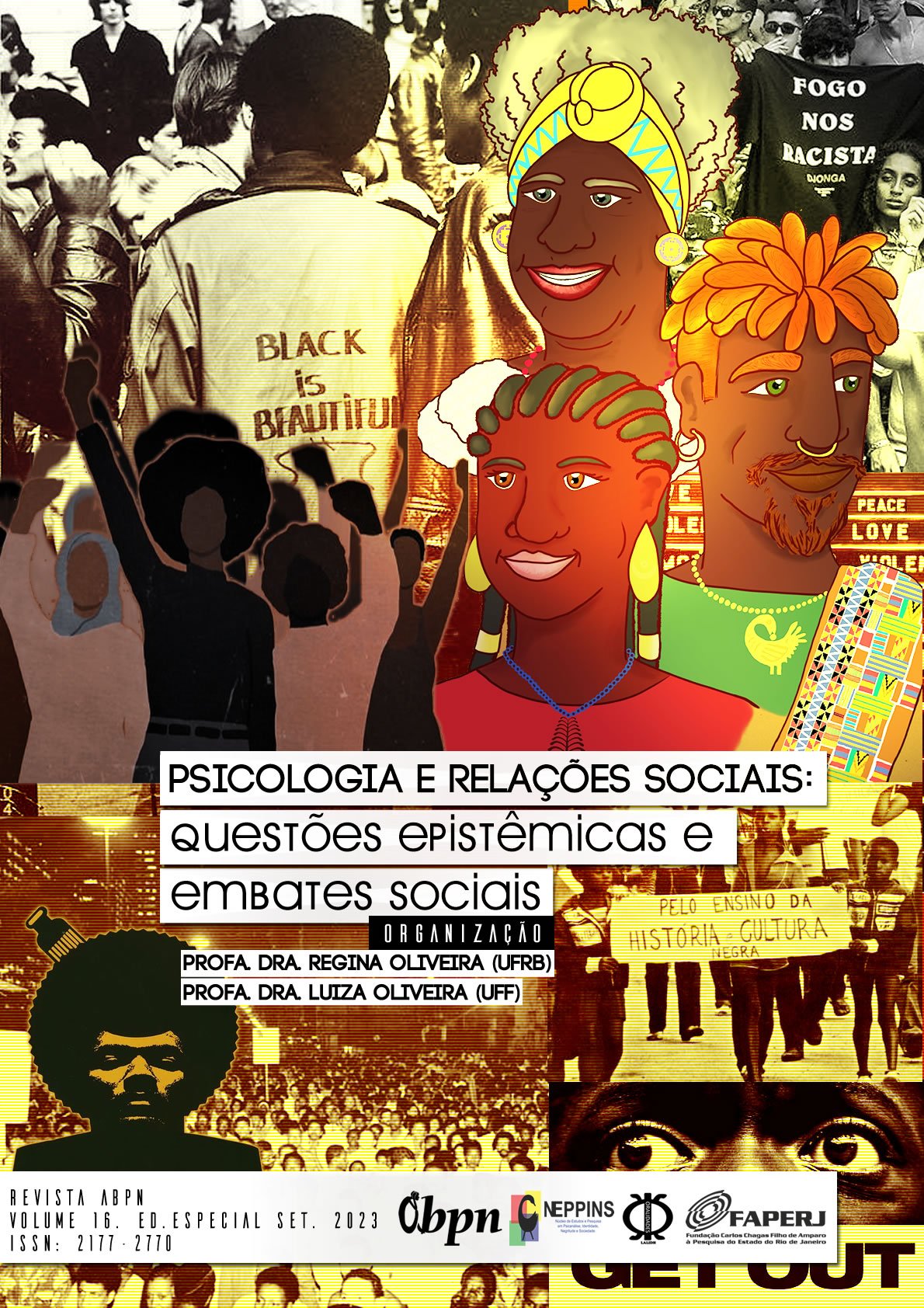MENTAL COUNTERCOLONIZATION: QUILOMBOLA KNOWLEDGE IN PSYCHOLOGY
Main Article Content
Abstract
This article proposes a process of mental decolonization based on quilombola knowledge, aiming to decolonize the practices of mental health care. It presents a story about the forced removal of babies, based on the experience and work of a psychology intern, a black woman of quilombola descent, in a Psychosocial Care Center for Alcohol and Other Drugs - CAPS AD. In the theoretical framework, we draw upon the knowledge of Beatriz Nascimento and Nêgo Bispo, both quilombola intellectuals, along with other knowledge. We consider it urgent to include quilombola epistemologies, knowledge, and practices in psychology, as this knowledge is crucial in confronting mental colonization.
Article Details

This work is licensed under a Creative Commons Attribution 4.0 International License.
Copyright Statement
- Authors retain copyright and grant the journal the right of first publication, with work simultaneously licensed under the Creative Commons Attribution License CC-BY 4.0 which allows the sharing of the work with acknowledgment of the authorship of the work and initial publication in this journal.
- Authors are authorized to enter into additional contracts separately for non-exclusive distribution of the version of the work published in this journal (eg, publishing in institutional repository or book chapter), with acknowledgment of authorship and initial publication in this journal.
- Authors are allowed and encouraged to post and distribute their work online (eg in institutional repositories or on their personal page) at any point before or during the editorial process, as this may lead to productive changes as well as increase impact and citation of published work (See The Effect of Free Access).

